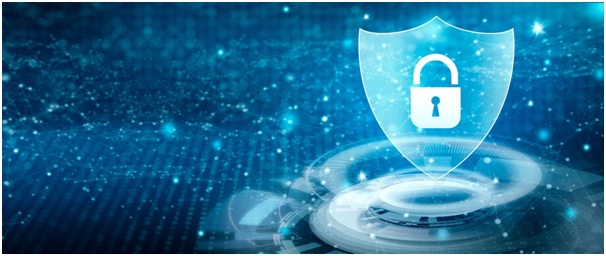
Shield with padlock icon in personal data security cyber concept 2883755 Stock Photo at Vecteezy
Online security has risen to the top of the priority list for both individuals and companies in the contemporary digital era. It is essential that everyone take proactive precautions to protect their online activity given the rising threat of cyberattacks. An additional layer of defense against cyber-attacks can be offered by using reputable online security software like Guardio. In this article, we’ll talk about some useful advice and resources that might help you protect your online reputation from potential dangers.
Make Your Password Secure
One of the simplest and best ways to protect your online activities is by using a strong password. A strong password should have a minimum of 12 characters and be made up of a combination of capital and lowercase letters, digits, and special characters. Don’t use passwords that are simple to guess, such as your name or birthdate.
Switch on two-factor authentication
In order to access your online accounts, you must also enter a special code as an extra layer of security known as two-factor authentication (2FA). Typically, this code is delivered via email or mobile device. The risk of unauthorised access to your accounts can be greatly decreased, according to Guardio reviews.
Update your software regularly
To protect your online activity, you must maintain your software updated. Cybercriminals could gain access to your computer by taking advantage of flaws in older software. Updating your operating system, web browser, and antivirus software on a regular basis will boost your security.
Employ a VPN
Using a VPN, which encrypts your internet connection and routes it through a secure server, makes it more difficult for scammers to intercept your data. A VPN is quite beneficial while using public Wi-Fi networks, which are typically unsecured and vulnerable to hackers.
Virus-checking software
Antivirus software is a vital tool for making sure that your online activity is secure. It can identify and get rid of viruses and malware as well as other internet threats from your computer. It is crucial to use reputable antivirus software and make sure that it is regularly updated.
Websites, Links, and Social Media Data
When browsing webpages and clicking links, use caution. To trick you into visiting risky websites or downloading malware onto your computer system, cybercriminals frequently employ social engineering techniques. Ads, pop-up windows, and dubious websites should all be avoided.
Another essential tip for ensuring the security of your online activity is to limit the amount of personal information you disclose online. Don’t post sensitive information on social media, such as your home address, phone number, or credit card number. Be cautious when posting.
Last but not least, regularly backing up your crucial files is essential. Having a backup of your important files could hasten recovery time and lessen damage in the event of a cyberattack. For data backup, take into account employing cloud storage services or an external hard drive.
In conclusion
Protecting your online activity necessitates a combination of vigilance, knowledge, and the right tools. You may considerably improve your defence against cyber-attacks and maintain the security of your online presence by putting the advice and resources indicated in this article to use. To protect your online activities from potential risks, it is essential to be informed about the most recent online threats and take preventive action. Keep in mind that when it comes to internet security, prevention is preferable to cure.